Delaware Beaches Shutting Down Due To Rare Bird Sighting
Just when you thought you were going to be able to take a trip to one of your favorite Delaware beaches, this rare bird sighting is here to ruin your…

Delaware Beaches Shutting Down Due To Rare Bird Sighting
Brian E Kushner/ Getty DAMJust when you thought you were going to be able to take a trip to one of your favorite Delaware beaches, this rare bird sighting is here to ruin your day. Certain portions of Delaware beaches are shutting down due to the unexpected guest.
A portion of the beach at Gordons Pond in Cape Henlopen State Park is closing to the public. The state park in Lewes is temporarily closed after a piping plover nest was discovered in a sand dune.
Delaware Beach Closure
According to a Delaware Department of Natural Resources and Environmental Control press release, the closure went into effect on Monday.
Apparently, the closure could last through August to protect the piping plover nest and any chicks that may hatch.
Protective fencing will be installed around the nest as well as cautionary signage.
Because of the closure, surf fishing access will be limited. As a result, driving through the area is also prohibited.
The last time this bird's nest was discovered in the area was 2016.
In addition, a different stretch of oceanside beach at Cape Henlopen named The Point, is also closed.
What Is A Piping Plover Bird?
The piping lover is one of 21 endangered birds on the DNREC Division of Fish and Wildlife's endangered species list.
Piping Plover birds can hide in plain site due to their sandy grayish brown color. These birds have white underparts and a narrow, often broken collar.
Its pale back matches the white sand beaches that it inhabits. They help to control the insect and small crustacean populations on Delaware beaches.
Delaware Endangered Species List Is Now Up To 86 Species
Delaware Endangered Species List Is Now Up To 86 Species
It's hard to believe that our little state of Delaware is home to a number of threatened and endangered plant and animal species. Some of the best known of these are the Leatherback Sea Turtle, Mud Salamander, Sperm Whale, Atlantic Sturgeon, Bethany Beach Firefly and the Delmarva Fox Squirrel.
The Delmarva Fox Squirrel used to be common in the state. These squirrels were nationally listed as an endangered species, but removed in 2015. However, they do remain on Delaware's list. According to DNREC, the squirrel has been reintroduced into the first state in surrounding Delmarva arras in an effort to have them removed from Delaware's list of most endangered. The most recent release was last year, in 2022.
The First State now lists 86 species as endangered or threatened. The law provides regulations for the conservation of threatened and endangered plants and animals and the habitats in which they are found. Title 7 of the Annotated Code of Delaware prohibits the importation, transportation, possession, or sale of any part of an endangered species of fish or wildlife.
Here are some of the most endangered species here in the first state. See the full list of all of Delaware's endangered species here.
Leatherback Turtle
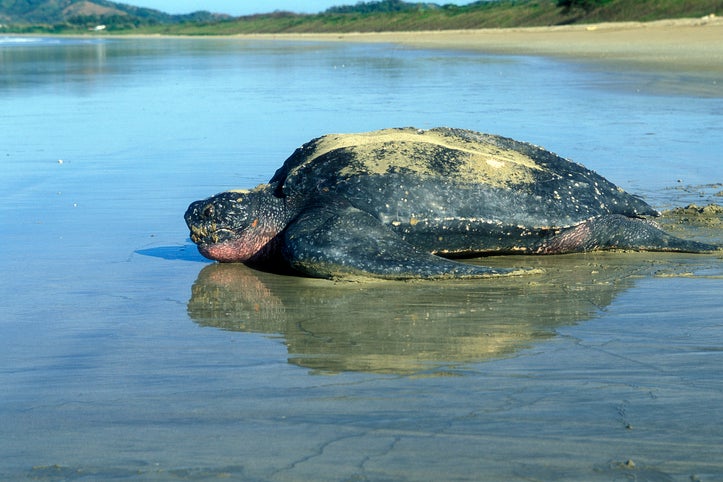
Leatherback Turtle spawning
Broad-winged Hawk
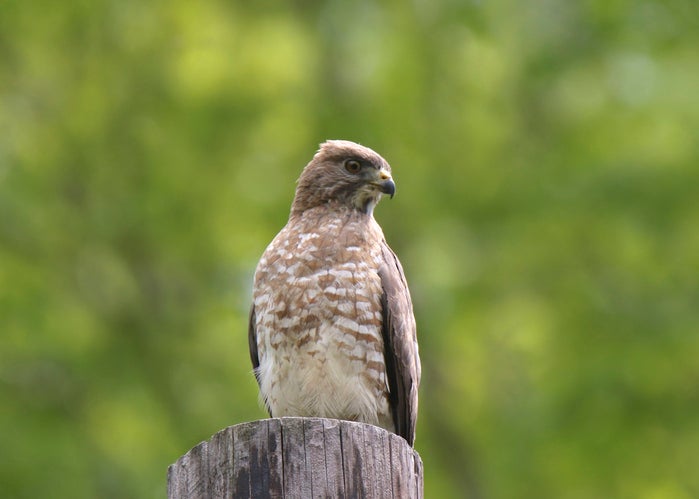
Broad-winged Hawk (buteo platypterus) perched on a wooden post
American Kestrel
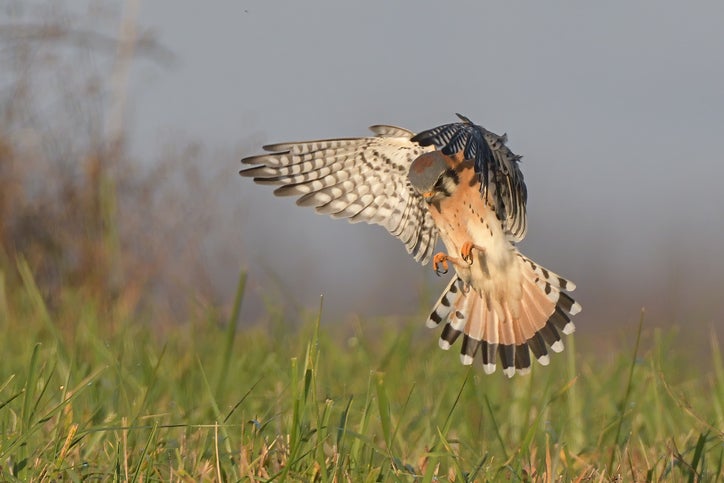
Kestrel Hunting
Short eared owl
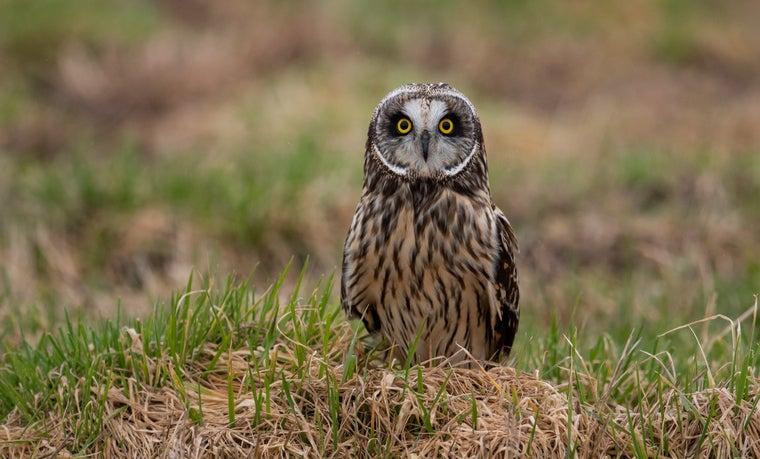
Short eared owl in Washington
Upland Sandpiper
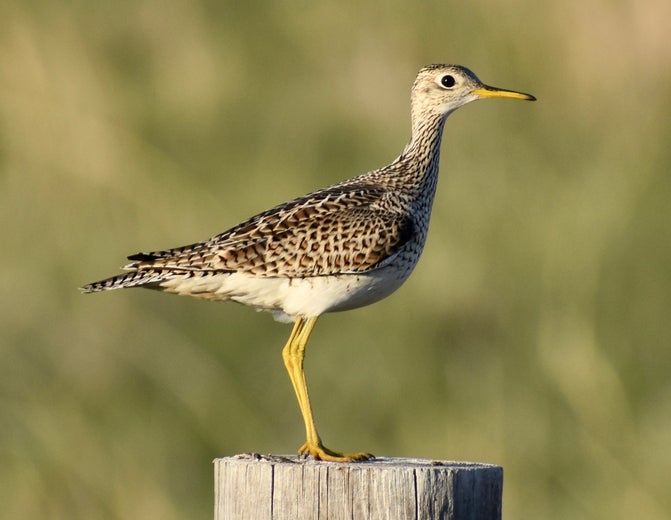
An upland sandpiper stands alert on a fence pole.
Forster’s terns
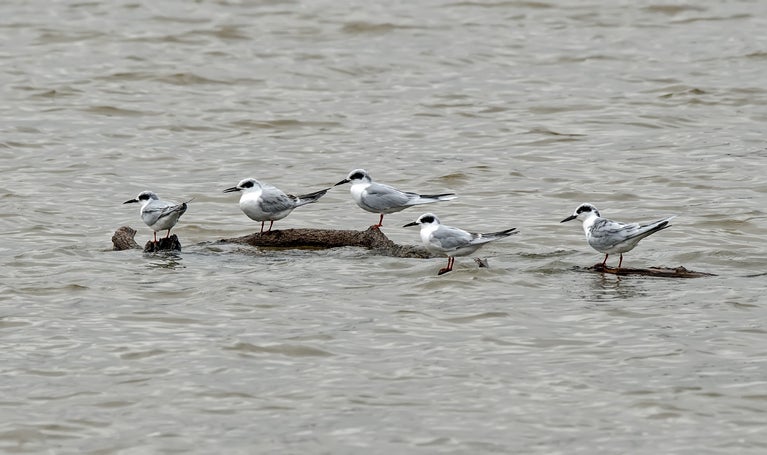
Forster’s terns perched on partially submerged log
Hooded Warbler
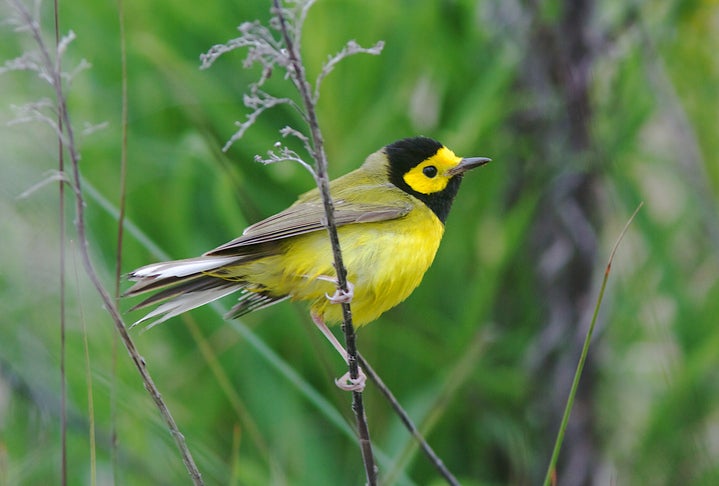
The Hooded Warbler is a New World warbler. It breeds in eastern North America and across the eastern USA and into southernmost Canada,. It is migratory, wintering in Central America and the West Indies.
Plain-Bellied Water Snake
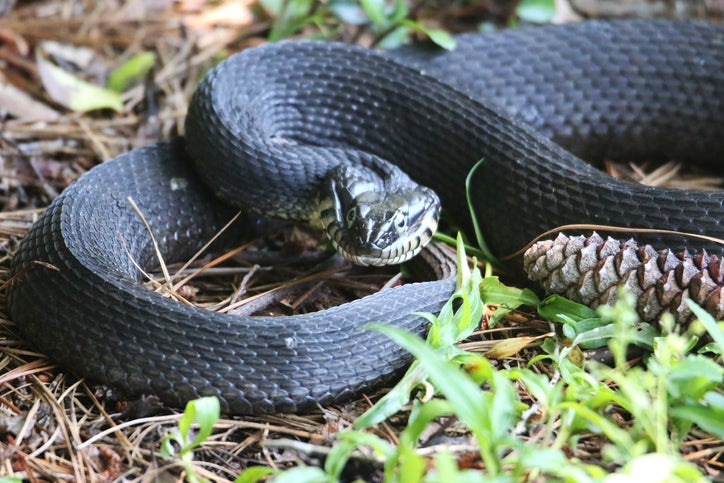
Snake in grass with pinecone
Little Brown Bat
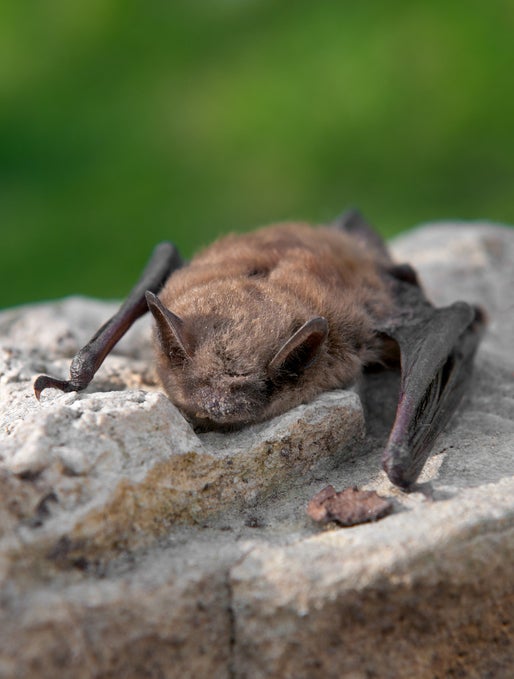
Little Brown Bat (Myotis lucifugus) - face to viewer - green background
Sperm Whale
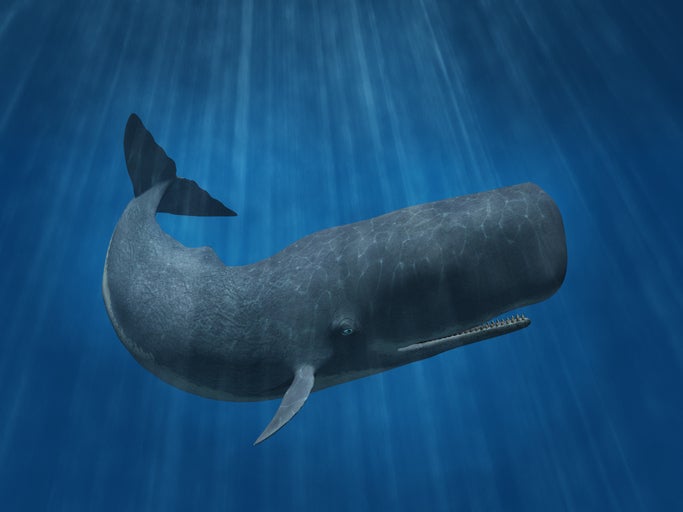
3D render depicting a sperm whale undersea.
Delmarva Fox Squirrel
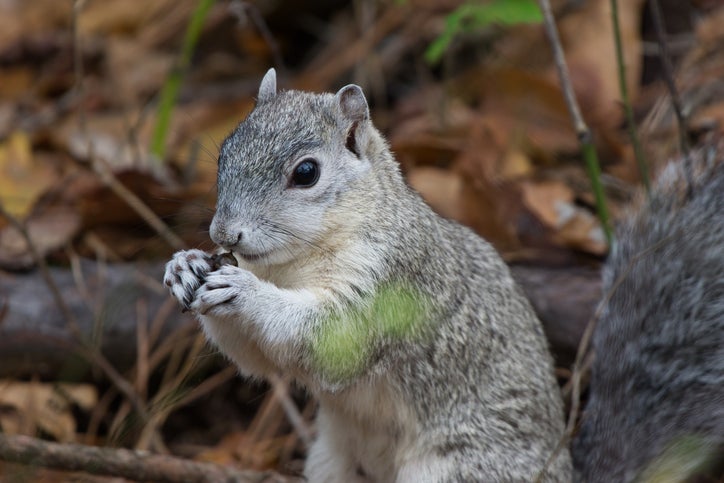
A Delmarva Fox Squirrel eats a nut in Chincoteague National Wildlife Refuge
Young Humpback Whale In Blue Water
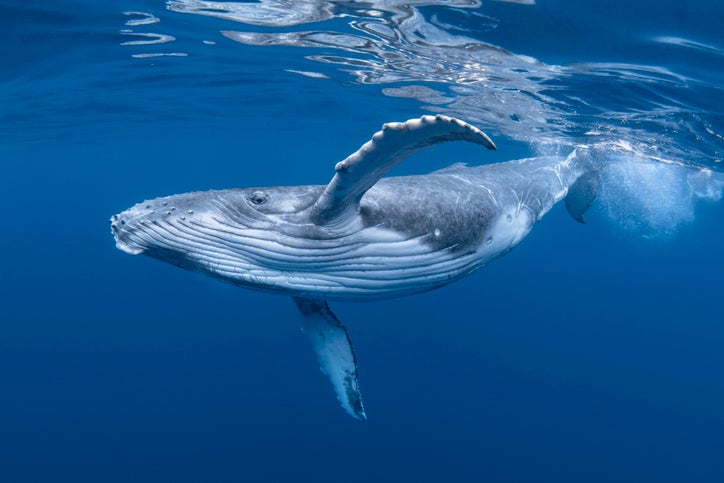
A baby humpback whale swims near the surface in blue water
Tree Frog
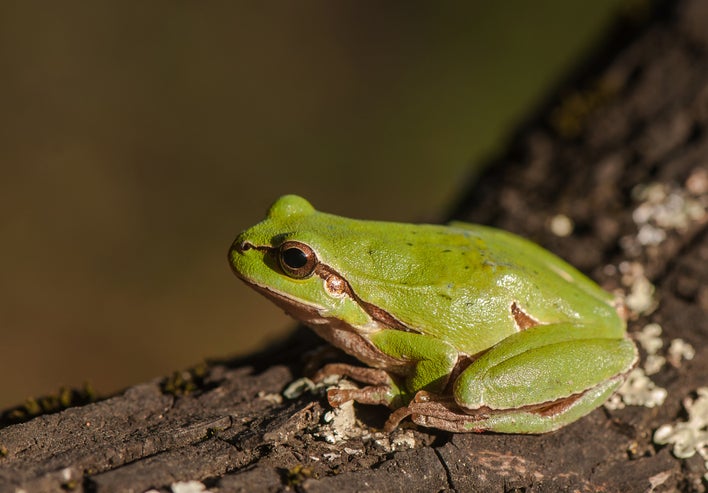
Green tree frog on a tree bark covered with lichen
Oystercatcher
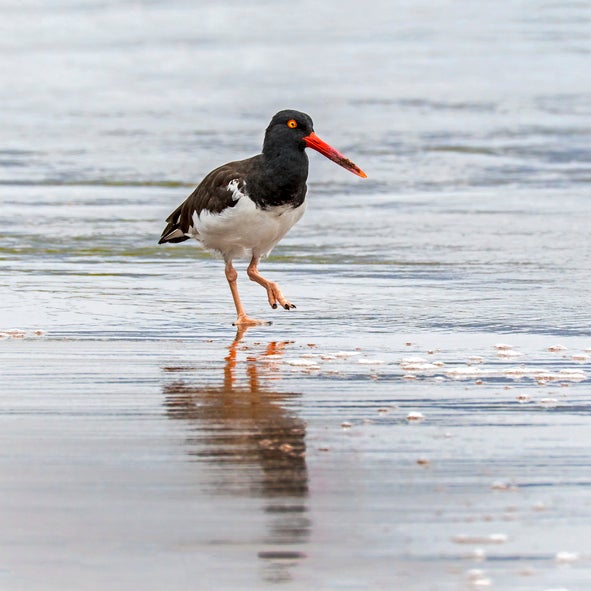
American oystercatcher (Haematopodidae) (The oystercatchers) migrates off the Galapagos Islands, Ecuador, South America
Black-crowned night heron looking
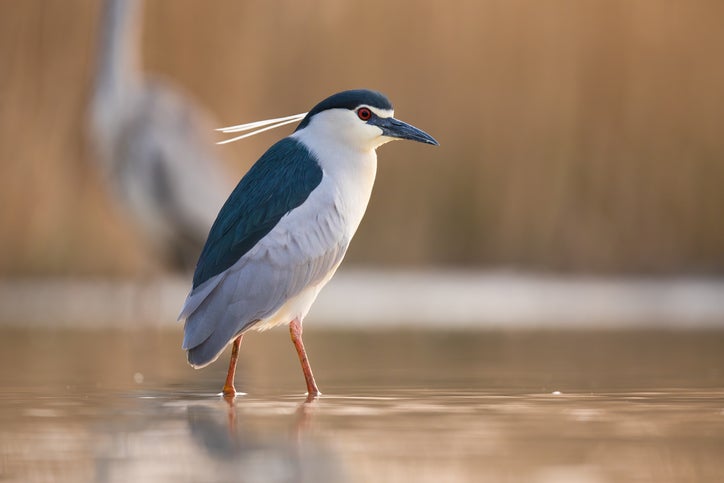
Black-crowned night heron, nycticorax nycticorax, looking in water in spring. Small white bird standing in river. Wild feathered animal waiting in swamp.







